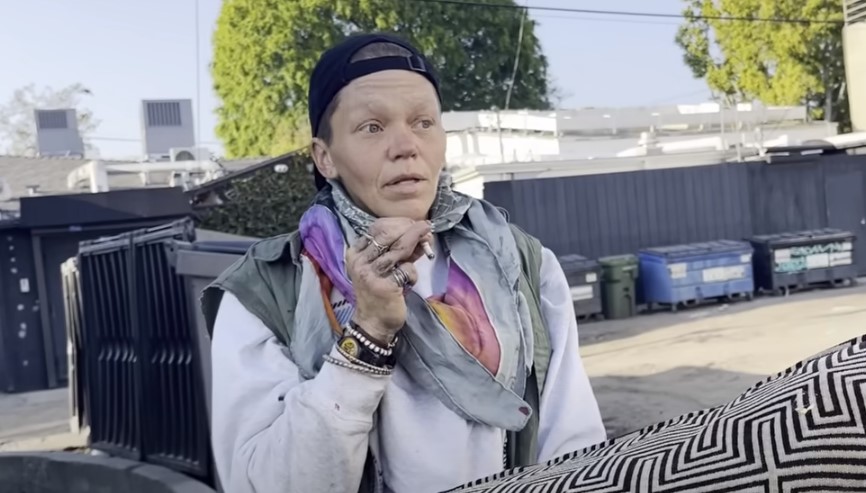From Magazine Covers to the Streets: Loni Willison’s Painful Descent and Her Claims Against Jeremy Jackson
There was a time when Loni Willison’s face beamed from fitness magazines and her toned physique embodied wellness and strength.
Today, she’s nearly unrecognizable—haunted by addiction, chronic pain, and a life lived on Los Angeles streets. And in a raw, heart-wrenching interview, she says it all started with her ex-husband, former Baywatch actor Jeremy Jackson.
Once a sought-after fitness model appearing in Iron Man, Glam Fit, and Flavour, Willison’s fall from public grace has been both tragic and puzzling. She had the career, the body, the spotlight—and then she disappeared.
Now 39, Willison reemerged in recent years under shocking circumstances: homeless, disheveled, with visible signs of distress and deterioration. In a recent sit-down with X17 Online, she didn’t mince words when asked what triggered her downfall.
“My ex-husband. Getting married. At least I got divorced,” she said. “He set everything up to do this to me.”
Willison and Jackson married in 2012, but the union was brief and stormy. By 2014, the relationship imploded. According to past reports, one explosive argument allegedly ended with Jackson attempting to choke her during a drunken altercation—though he’s yet to publicly respond to the recent comments.

After vanishing for years, Willison resurfaced in 2018—no longer the face of fitness, but a symbol of silent suffering. Since then, she’s been frequently spotted digging through trash, pushing shopping carts, and living off-grid in L.A., her health visibly declining.
In her newest interview, Willison described chronic physical agony, including extreme abdominal pain she attributes to what she calls ongoing “electrocution.” She believes her body reacts to unseen environmental forces—electrical currents, metals, and chemicals—that make it unbearable to live indoors.
“I think because I pick up on electricity, I also sense other things—batteries, wires, metals,” she explained. “My body seems to filter all of it. I don’t fully understand how, but it’s real.”
When asked if she’s tried to get help, her answer was striking:
“There’s nothing anyone can offer me.”
Though assistance has been extended in the past, she says she never actively pursued it. She remains detached—even philosophical—about her condition, saying her life has “good parts and bad parts—whatever.”
The interviewer couldn’t help but point out her visibly damaged fingers. Her response was numb and immediate:
“I’ll be fine.”
Willison’s mental and emotional state is as fragile as her physical one. Her claims about being “tortured” and “targeted” reflect a mind still locked in trauma, perhaps exacerbated by years of addiction and untreated mental health issues.
She previously spoke of a deep struggle with crystal meth and paranoia, telling the Daily Mail in 2018 that she was “tortured in her apartment.”
Her ex-husband, Jeremy Jackson, has faced his own battles.
The former teen heartthrob has publicly admitted to substance abuse issues—including steroids and alcohol. In 2017, he served jail time following an incident in which he stabbed a woman during an altercation in 2015.
More Than a Tragedy—A Warning
Loni Willison’s story isn’t just a fall from grace—it’s a cautionary tale about the hidden costs of trauma, the fragility of mental health, and the thin line between fame and invisibility.
Her story is harrowing, but not rare. Countless people suffering from addiction and psychological trauma slip through the cracks of society every day—many without anyone noticing. Willison had a platform. She had fame. And still, she disappeared.
Whether or not Jeremy Jackson shoulders the blame, as she claims, one truth is undeniable: Willison is suffering, and has been for a long time. Her decline is not just personal—it’s systemic. It reflects a lack of safety nets, mental health outreach, and long-term care for those who quietly unravel behind closed doors.
Until society treats mental health with the urgency it deserves, more people like Loni Willison will fade into the background—until it’s too late to bring them back.
